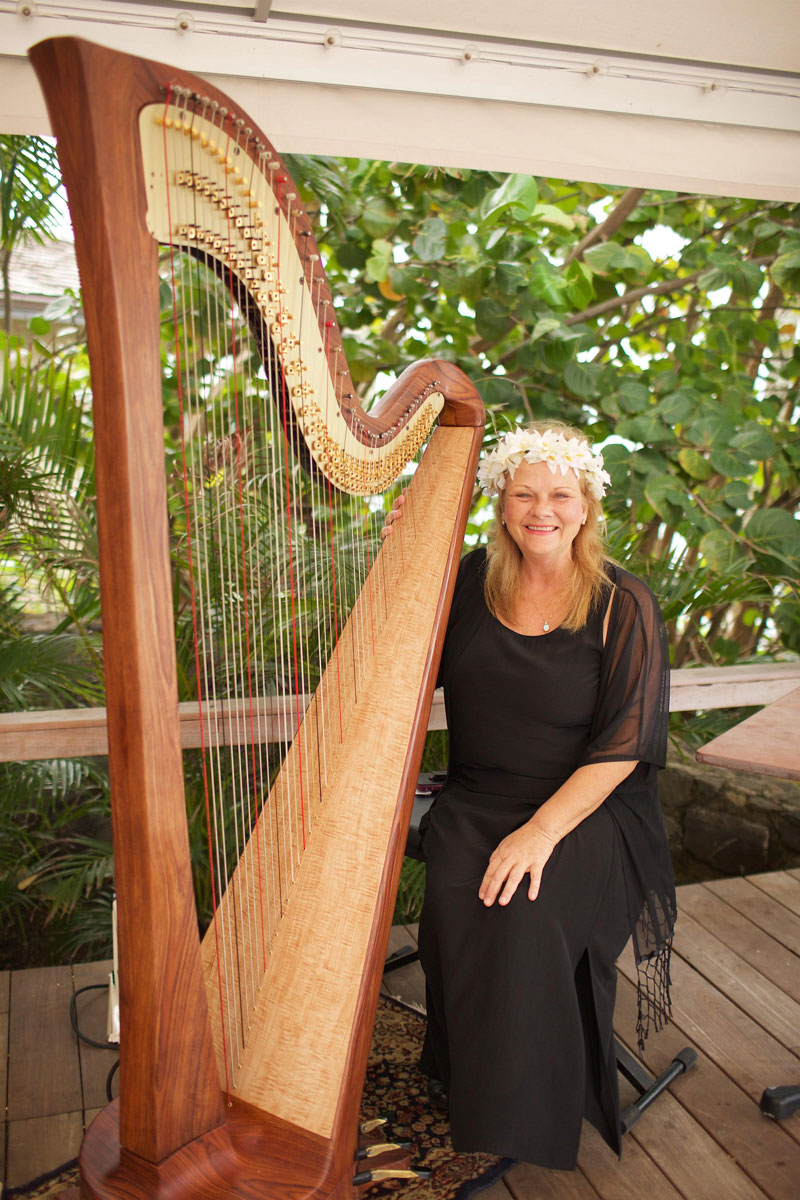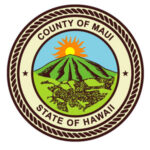In 2014, Maui musician Irene Ryding graduated from the International Harp Therapy Program (IHTP). She took up the harp in 1998 after a series of surgeries to correct a congenital disorder in her spine. “Hearing about harp therapy, I was determined to learn more as a part of my rehabilitation,” Ryding said. “Then, awed by the personal benefits I received from the harp’s soothing timbre and spiritual associations, I felt called to share my discovery with others.”
Ryding moved to Maui in 2003 and immediately began playing harp professionally for weddings and other events. She is a Certified Harp Therapy Practitioner from the IHTP program credentialed by the National Standards Board for Therapeutic Musicians. Although she continues to play the harp publicly, she also volunteers in the Harps for Hospice program.
“Playing music in hospital and hospices is much more than entertainment and playing songs,” Ryding explained. “Research has shown that harp music reduces blood pressure and heart rate and that there are many subtleties with matching breathing tempos, moods, and ‘resonant tones’ that feel right or good to us. It can decrease pain by elevating endorphin levels, promoting relaxation, calm, and comfort.”
Therapeutic harpists use what they call ‘inclusive attention’, in which they tune into a person and look for clues such as eye movement, changes in muscle tension, or speech to find the resonant tone for the client. “We tune into people’s breathing, their mood and their surroundings to develop something that is really personal,” Ryding noted. “By watching someone’s breathing pattern, the practitioner can match it with a rhythmic meter, 2/4, 4/4, or 6/8. For example, playing along with the breathing rhythm helps to regulate it to a more desirable rate, affecting the well-being of the patient.”
Ryding concluded, “I want to study more about harp therapy because I believe it’s time to pay forward to others in need for all the wonderful opportunities and benefits that I have enjoyed through a lifetime of music.”
For information about weddings, harp lessons, and other special events visit: www.mauiharper.com.
The harp is specifically effective in therapeutic settings because it is the most resonant of all instruments. The plucked strings vibrate freely, which creates a unique series of overtones.
Irene Ryding, Harp Therapy Practitioner

